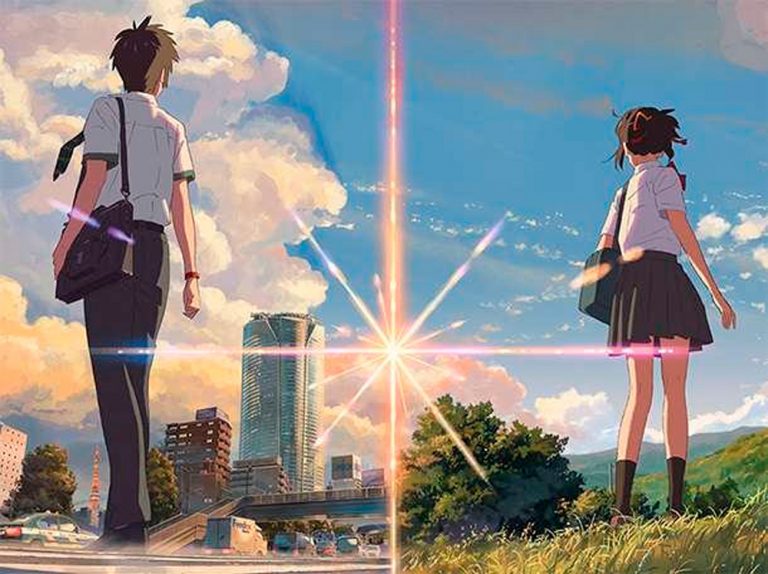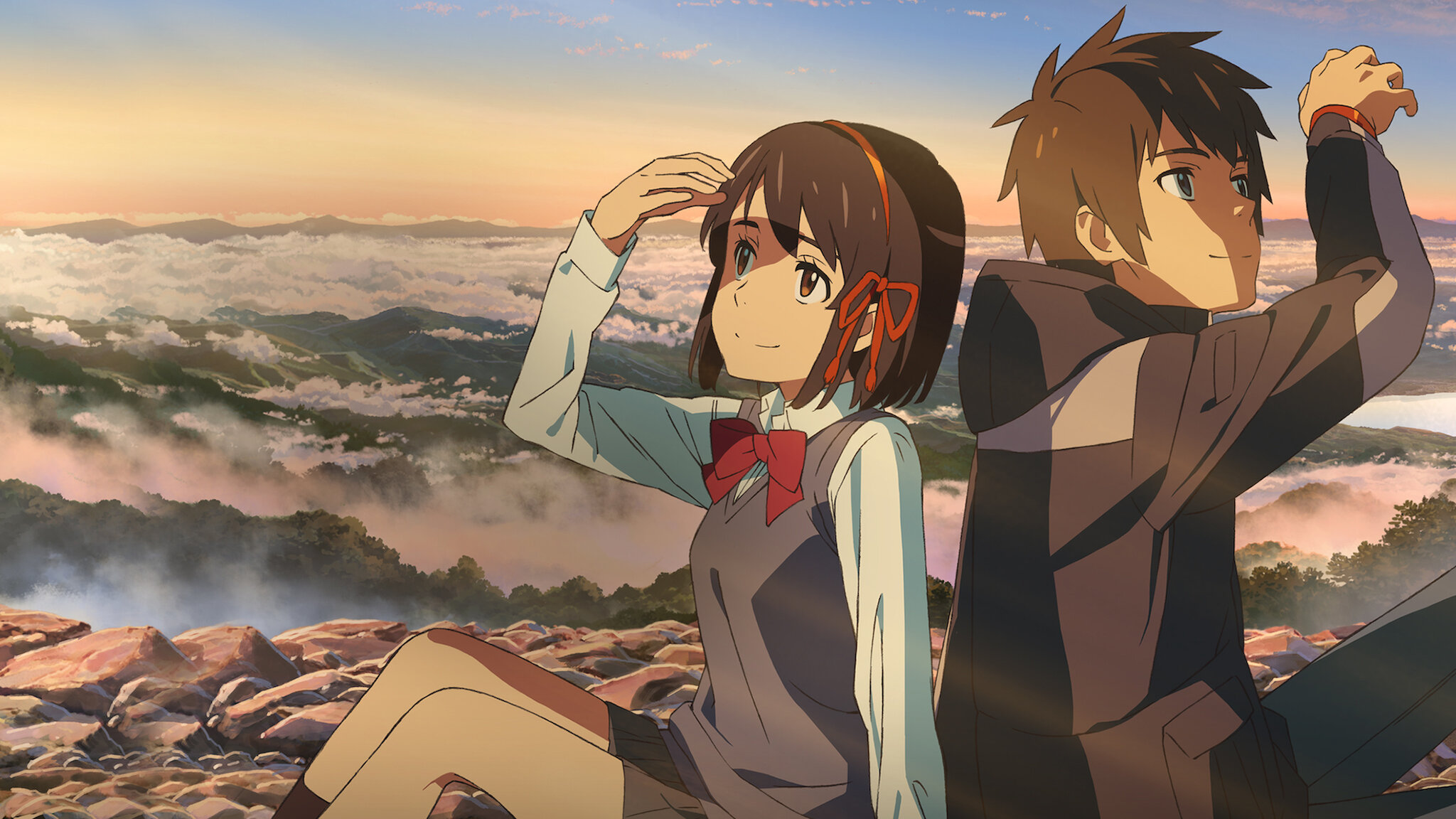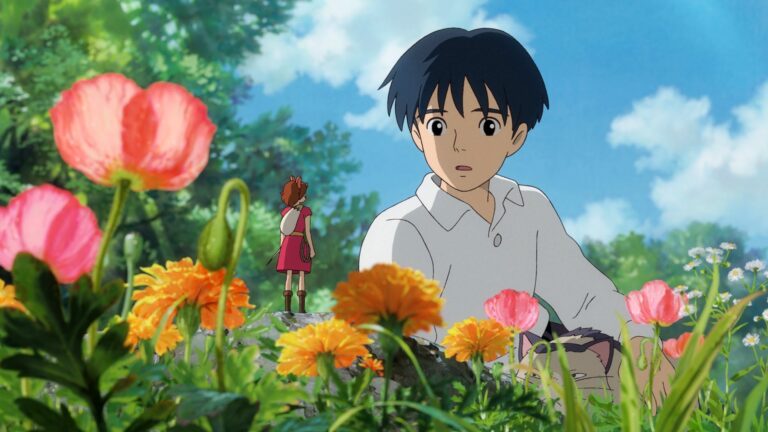Review of Your Name (2016): A Timeless Love Story
When Your Name (2016), directed by Makoto Shinkai, hit theaters, it was a massive sensation. I heard the buzz back then but didn’t catch it, having only seen Shinkai’s earlier work, The Garden of Words (2013). It wasn’t until recently that I finally watched Your Name, admittedly late to the party compared to most fans. Still, the experience was worth the wait.
Plot Summary
The story follows Mitsuha Miyamizu, a girl from a rural town, and Taki Tachibana, a boy living in Tokyo. For a few days each week, they inexplicably swap bodies through their dreams. Over time, this strange connection helps them understand each other, improving Taki’s life and shielding Mitsuha from bullying. But when Taki tries to find Mitsuha in person, he hits a wall—he can’t contact her and doesn’t know her town’s name. Relying on fragmented memories, he sketches the landscapes from his dreams, hoping someone will recognize them.
At a diner, a man identifies the place as Itomori, a town destroyed by a meteor three years earlier. Stunned, Taki recalls a sacred shrine on a mountain from his dreams and journeys there alone, telling his friends to return to Tokyo. At the shrine, he drinks sacred sake tied to his swap with Mitsuha, triggering another swap into her body on the eve of the meteor strike. Mitsuha’s grandmother hints that her mother and she herself once had similar dreams of becoming someone else. Taki, now in Mitsuha’s body, enlists her friends Sayaka and Teshi to stage a bombing to evacuate the town. Realizing Mitsuha (in his body) is at the shrine, he races to meet her. They connect briefly at twilight, a fleeting moment where their worlds align, before returning to their own bodies.
Mitsuha, now herself, tries to evacuate the town but fails when her friends’ plan falls apart. Desperate, she confronts her estranged father to urge evacuation. Three years later, the town’s residents survive, but Taki and Mitsuha no longer remember each other’s names, though their faces and feelings linger. Years later, they cross paths on a train, disembark, and meet at a staircase, simultaneously asking, “What’s your name?”
Standout Themes
Like Shinkai’s other works, Your Name explores young love, societal barriers, and the fleeting nature of youth. What sets it apart is its focus on time as the ultimate obstacle. Mitsuha and Taki exist in different timelines—Mitsuha dreams of the future, Taki of the past. Their connection, facilitated by dreams, bridges this temporal divide. When Mitsuha visits Tokyo to meet Taki, he doesn’t yet know her; when Taki seeks her in Itomori, he finds only ruins.
Driven by love, Taki drinks the sacred sake to swap into Mitsuha’s body, aiming to save her and her town. This act—perhaps born from a desire just to see her—allows him to alter history. Mitsuha, swapped into Taki’s body, learns of the meteor’s destruction and works to change fate. Their twilight meeting is their final encounter, enabling Mitsuha to convince her skeptical father to evacuate. The cost is steep: they lose all memory of each other’s names and shared experiences. Yet, their love endures, a testament to the film’s core message: love transcends time, remaining eternal even when memories fade.
Another layer emerges through Mitsuha’s grandmother, who reveals that she and Mitsuha’s mother also experienced body-swapping dreams. This legacy adds depth, suggesting a mystical thread in their family. Even Mitsuha’s father senses something off when Taki, in Mitsuha’s body, confronts him, asking, “Who are you?” after her uncharacteristic outburst.
Stunning Visuals
In the realm of anime, Your Name shines with its blend of hand-drawn and computer-generated imagery. The visuals are breathtaking, especially the meteor’s descent and the twilight scene where Mitsuha and Taki meet, which feels like a dream frozen in time. The bustling crowds, subtle gestures, and expressive faces of the protagonists linger long after the credits roll, leaving viewers enchanted by their vividness.
Dramatic Moments
The film’s most gripping moments come when Taki discovers Itomori’s destruction and when Mitsuha, after meeting Taki, races to confront her father as the meteor splits, threatening the festival below. Though Your Name is primarily a romantic drama, these bursts of tension provide just enough excitement to balance its emotional core, making them standout highlights.
Love as the Heartbeat
Shinkai’s films often weave romance with fantastical elements, and Your Name is no exception. Compared to The Garden of Words, it offers a more hopeful ending. Though time erases Taki and Mitsuha’s memories of their shared journey, their lingering connection ensures they seek each other out, avoiding a tragic separation. This bittersweet resolution feels satisfying, emphasizing that love persists despite the ravages of time.
Final Thoughts
Your Name is a masterclass in blending romance, fantasy, and subtle social commentary. Its exploration of time as a barrier, paired with jaw-dropping visuals and heartfelt performances, makes it unforgettable. While it shares Shinkai’s signature emotional depth, its hopeful conclusion and gripping moments set it apart. For anyone who’s ever felt love defy distance or time, this film is a poignant reminder that some bonds are eternal.








